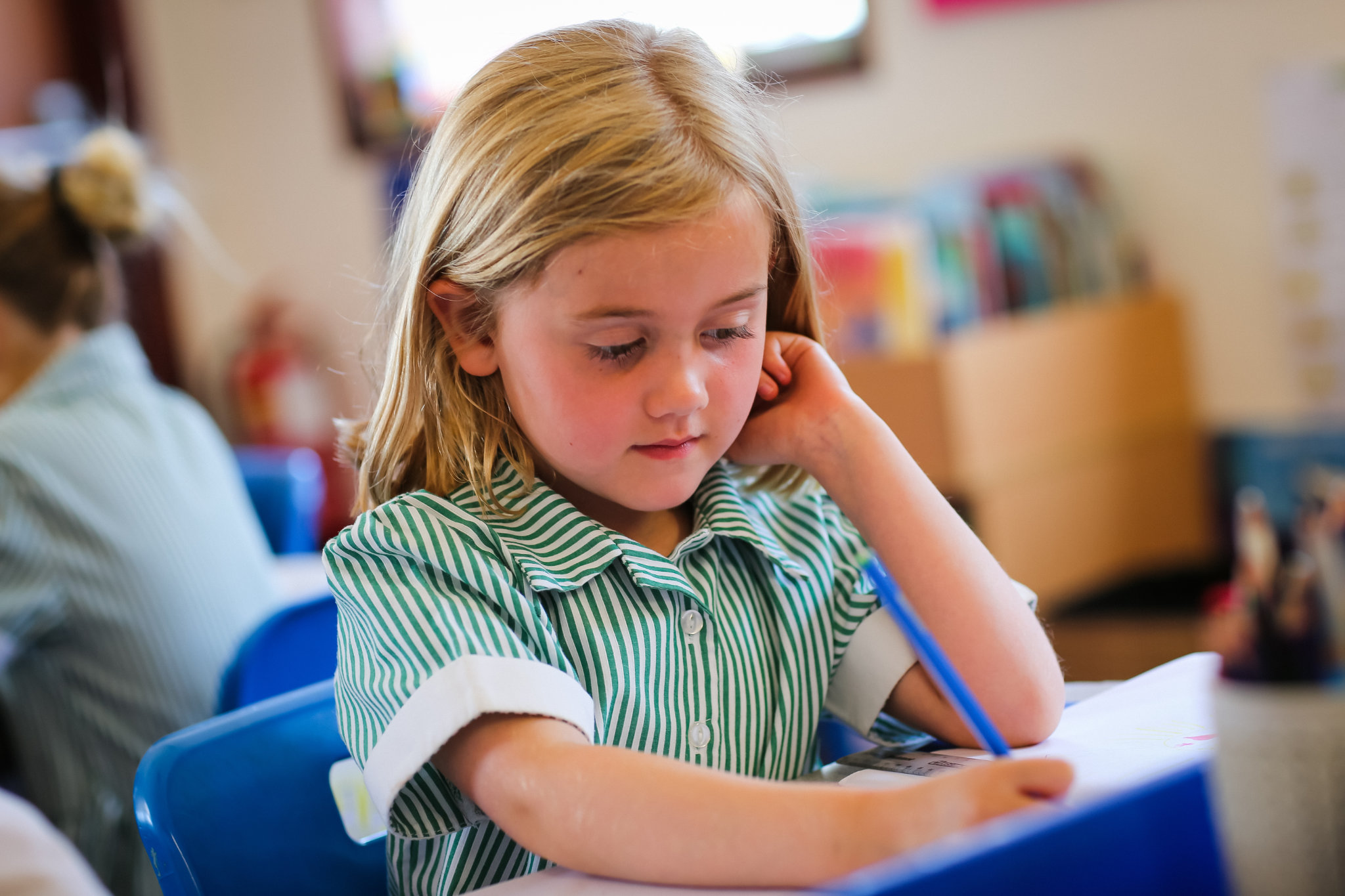Nurturing creativity from a young age can help children with their overall emotional, academic and social development. Einstein believed that ‘creativity is intelligence having fun’, and as a leading prep school in Devon, we like to encourage our pupils to use both important qualities!
There are a whole host of imaginative games, activities and daily habits that you can practice with your child as imagination is something children have by the bucketload. We have highlighted some of the best tried and tested methods to encourage your child’s creativity below.
1. Foster a Creative Environment
Firstly, think of the layout of your house. In the same way that grown-ups enjoy having an armchair or office to themselves, kids benefit from a dedicated space in which they can create, play and have fun.
Whether this is a playroom or a den in the garden, your child will benefit from having a space they can call their own.
A wonderful way to introduce your child to responsibility would be to encourage them to decorate and take care of this space. Taking a no-frills approach will help your child relax and fully enjoy the activities they are doing without over worrying about getting paint or playdough on mum and dad’s new carpet.
2. Get Crafty
When we look around the house, there is a whole array of creative materials at our fingertips!
Take a peek at the products destined for the recycling bin and consider how a child may be able to shape these into creative projects. Egg and cereal boxes, bottle caps, tin cans and the classic toilet roll holder all have the potential to be turned into DIY craft projects. Perhaps they’ll make you a majestic crown or construct a spaceship heading towards Mars?
Asking your child to choose the materials they’re most interested in will give them a sense of ownership over their project. Experimentation with different materials, colours and textures are all great ways to encourage creativity.
What’s more, it doesn’t matter if the end product is perfect. It’s just as important to enjoy the process as the outcome!
3. Turn the Ordinary into Something Extraordinary
As your child’s mind is exposed to new situations, their neural pathways form new connections. It’s important to reinforce positive interactions and habits during this stage.
Being present whilst your child plays will help them feel supported and safe, whether they’re setting up a make-believe shop, tending to imaginary animals on the farm or going on a unique adventure.
Imagination allows us to understand and make sense of the world in a meaningful way. Want to imagine you’re on a deep-sea dive in the swimming pool? What about the classic ‘floor is lava?’ Every landscape has the potential to be transformed into a pioneering new world to discover. It’s important to lean into your child’s world and empathise with their experiences.
4. Tell Stories
There’s a reason why children’s faces light up whilst listening to a story! It’s well documented that children develop their language, listening, memory and imaginative skills whilst sharing stories.
Reading with your child before bed is a lovely habit for both parents and children and engages creative thinking. Allowing your child to pick the books that they’d like to read from the book shop or library will give them a sense of responsibility for their learning.
As well as listening to stories from parents or platforms such as Audible, another brilliant way to encourage creativity is to create new stories with your child. One way to promote this is to use ‘story dice’. Each side of the die has a different symbol that prompts where to take the story next.

5. Embrace Music
Many children love to sing and dance! It’s great to get their creative minds ticking whilst promoting hand-eye coordination, timekeeping and most importantly, having fun!
Nursery rhymes and poems are excellent ways to introduce your child to melodies, while tambourines, harmonicas, recorders and even toy pianos are all creative ways to get your child tapping their feet. There are even bath toys that make different notes when filled with water, so jamming sessions don’t have to be restricted to sing-alongs in the car!
6. Provide Unstructured Time
Frequently creativity comes to both children and adults when they are allowed time alone. When a person, young or old is solitary, often somewhere quiet, creativity is sparked.
This is why structured classes or workshops can often be limiting, as they are enforced at a set time and usually come with a best practice way of completing tasks. By liberating schedules and allowing a couple of hours a day without structure, this time can offer the chance to develop a creative mind. It will enable children time to tinker, play and create, without any time constrictions or the pressure of chores.
7. Collaborate on a Project
Some of the greatest ideas and creations come when people work together, as each person brings an alternative point of view or vision to the group or pair. Conflicts of interests and ideas often promote creativity, a fusion of ideas emerge, with a consideration of different viewpoints.
A collaboration of ideas can enable the creation of something unique. Working with others, where individuals suggest ideas no matter how obscure or unusual, encourages people to think outside of the box, which ultimately, builds upon a creative mind.
8. Demonstrate Creativity
Parents, teachers, friends and family are just some of the role models in your child’s life. Try to surround them with and be an example of a creative person. Try things and fail. Create something and show them. By doing so, you’re demonstrating to them that anyone can be creative, and there are many ways of doing so.
Whether you want to rearrange the furniture in your home, sow some seeds in the garden, create a picture for your bedroom wall or have a go at building something, let them into your creative process and encourage them to contribute to it.
9. Provide Resources
Although creativity doesn’t always require resources, such as role play, singing, dance and drama, some other avenues of creativity do. Having pens, paints, paper and craft items in your home, in a place where your child can easily access them, allows them to run with their creativity when the moment strikes.

10. Reduce Screen Time
There may be various creative endeavors your child can explore through a screen, however a balance must be struck. Spending time on a handheld device or in front of a television screen can be limiting if healthy habits are not maintained, as, rather than spending time exploring their interests and developing their skills, they are, instead, absorbed by what is in front of them on the screen. Encourage your child to play and create, rather than spending time passively in front of a screen.
There are many ways to encourage and let your child’s creativity shine through. Children are naturally curious, and they are bound to think of their own creative activities, so ensure that you are listening to what they want to do with their time, too. With the right encouragement and guidance, children can boost their own creative and critical thinking.
If you’re considering a private preparatory school for your child, or if you have any other enquiries, please get in touch.









